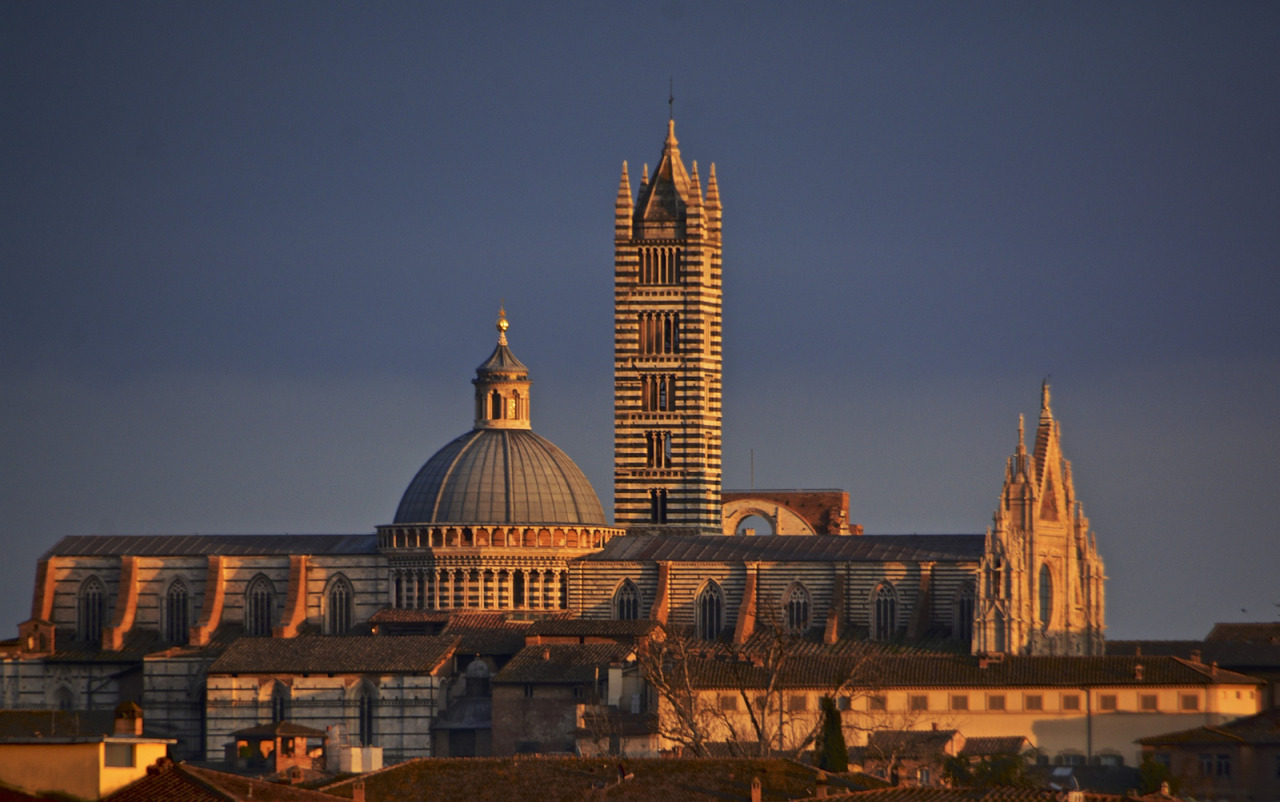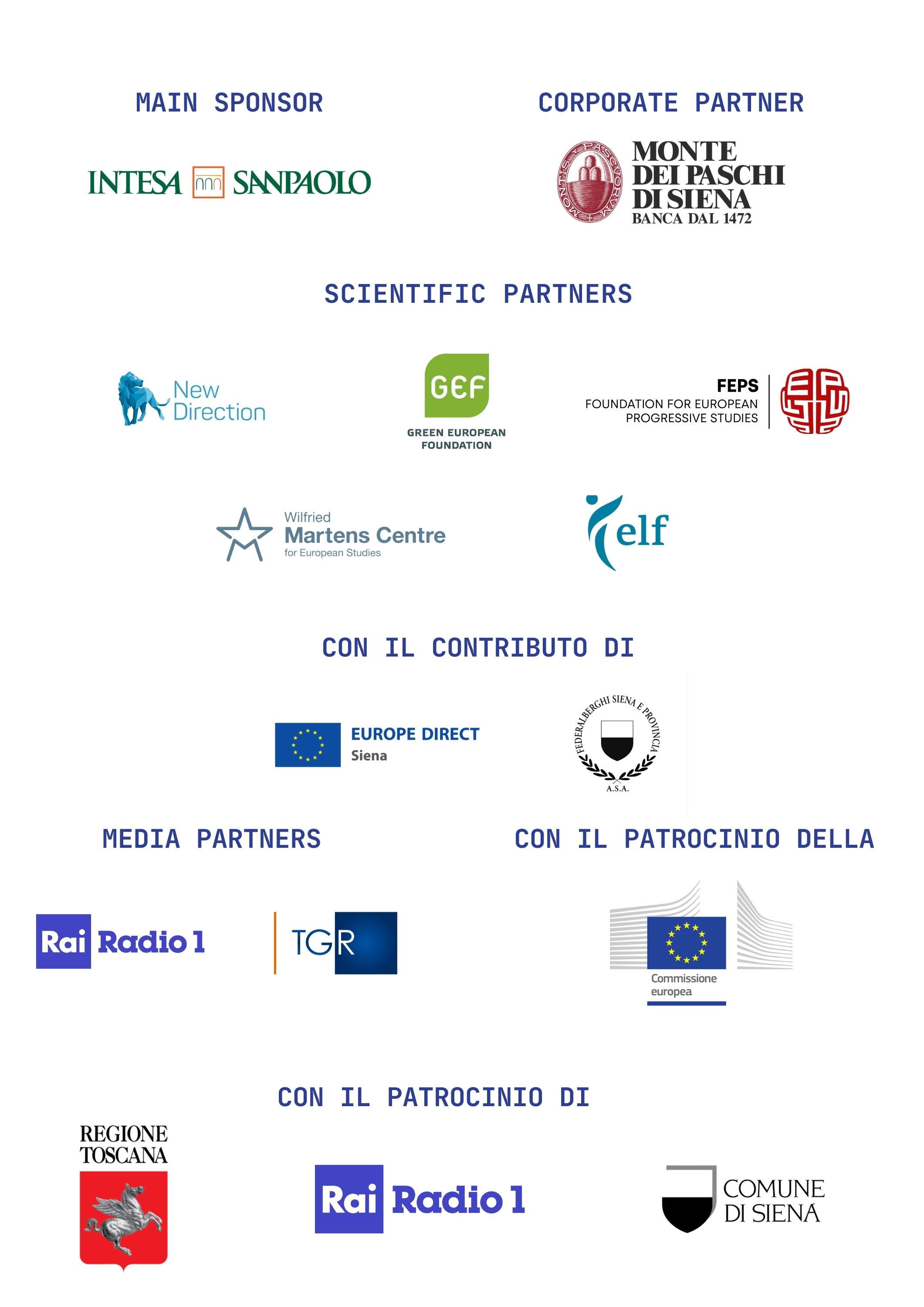THE RESULTS OF THE FIFTH SIENA CONFERENCE ON THE EUROPE OF THE FUTURE
Certosa di Pontignano, 12th - 13th - 14th September 2024

A couple of months after the elections of the European Parliament, held in June 2024, Vision has organized the fifth edition of the Siena Conference on the Europe of the Future in the charming location of Certosa di Pontignano (SI).
The Siena Conference is an attempt to go beyond ideological stereotypes and individual national agendas, in order to bring forth visionary yet pragmatic ideas and find common ground.
Over 110 guests with different backgrounds (scientists, economists, policymakers, journalists, academics, researchers, activists, students) gathered for three days, from 12th to 14th September 2024, to discuss some of the major challenges that Europe is facing in the 21st century: democracy, enlargement, sustainable finance and technoloy.

The conference followed the same format that Vision had successfully experimented within the 4th Siena Conference and previous editions and its "sister" conference, the Dolomites Conference on Climate Change (3rd edition, 17th-19th October 2024).
Plenary sessions open to all participants alternated with the work of "Problem-Solving groups," small working groups that gathered to discuss specific topics (democracy, ESG, fiscal, digital).
This year, the Conference had the participation of Intesa Sanpaolo as the main sponsor, Banca Monte dei Paschi di Siena as corporate partner, and Rai Radio 1 as media partner.

Five foundations affiliated to the major European political groups (FEPS, Foundation of European Progressive Studies, for the Party of European Socialists; ELF, European Liberal Forum, for the Alliance of Liberals and Democrats for Europe Party; ND, New Direction, for the European Conservatives and Reformists Party; GEF, Green European Foundation, for the European Green Party; Martens Centre, Wilfried Martens Centre for European Studies) organized five respective plenary sessions.
The conference's content was also shaped by students from the University of Siena and the European University Institute (EUI) in Fiesole. They prepared the discussions for the four Problem-Solving groups prior to the Conference and, participating in the group work, acted as rapporteurs, presenting the conclusions of the working groups on the final day of the Conference.
The outcome of the Siena Conference is the Pontignano Manifesto, a document that brings together the proposals developed by the working groups and the ideas that emerged during the plenary sessions and discussions of the Conference.
The Manifesto will be disseminated with the aim of influencing political decisions at both national and European level.

Among the key participants:
The SIENA CONFERENCE participants have developed a proper “problem-solving community”. The 2024 edition list included: Romano Prodi (Former Prime Minister of Italy and Former President of the European Commission), Erik Jones (Director of Schumann Center at the European University Institute), Simon Hix (Stein Rokkan Chair at the European University Institute) and Marco Buti (Tommaso Padoa Schioppa Chair at the European University Institute and former Director-General for Economic and Financial Affairs at the European Commission); Daniel Gros (Director of the Institute of European Policy Making at Bocconi University) and Eleanor Spaventa (Director of the Bocconi Lab in European Studies at Bocconi University); Roberto Di Pietra (Rector University of Siena) and Simone Borghesi (President European Association of Environmental and Resource Economists and Vice Rector of University of Siena); Joe Elborn (Evens Foundation); George Papaconstantinou (Director, School of Transnational Governance, EUI and former Greek Minister of Finance and of Energy), Giovanna Melandri (President of Human Foundation and Board Member of the Global Steering Group for Impact Investment; Former Italy’s Minister for Cultural Heritage and Youth Policies), Raja Chakir (Steering Committee of the French Association of Environmental and Resource Economists) and Gerlinde Niehus (Deputy Director, Defence and Security Cooperation, NATO Headquarters); Michael Benhamou, (Executive Director OPEWI Europe’s War Institute, Paris/France) Bill Emmott (Chairman of the International Institute for Strategic Studies and former editor of The Economist), Jan Piotrowski (Business Editor, The Economist), Lisa Jucca (Reuters) and Anne-Élisabeth Moutet (The Telegraph) and Iain Martin (The Times); Nicola Maione (President MPS) and Gregorio De Felice (Chief Economist Intesa Sanpaolo); Giorgio Gori (MEP for S&D Group), Sandro Gozi (MEP Renew), Dace Melbarde (MEP, Vilnius/Latvia).
The 2024 edition has been chaired by an extraordinary pool of thinkers, professors and policy makers coming from very different political angles. They – together with Vision and University of Siena – steered the conference towards the agenda setting. The chair group included: Maria João Rodrigues (President of the Foundation for European Progressive Studies and former Portuguese Minister of Employment), Peter Hefele (Policy Director of Martens Institute, the Political Foundation of the European People Party), Sandro Gozi (MEP Renew Europe, Italy’s former State Secretary for European Affairs), Kalypso Nicolaïdis (Professor at St Antony’s College, University of Oxford and Professor at the School of Transnational Governance, EUI), Robert Tyler (Senior Policy Advisor at New Direction), Taube Van Melkebeke (Policy Manager of Green European Foundation), John Hooper (Correspondent for Italy and the Vatican, The Economist).
Scientific partners of Vision have been the University of Siena and the European University Institute (EUI), to which the EU gave the task of promoting the academic debate on relevant topics for the European institutions. Institute of European Policy Making at Bocconi has also chaired two sessions of the conference.
As mentioned, one of the distinctive features of the conference is that each of the five political foundations/think tanks of the main European political groups presents their own works and delivers one of the plenary sessions: the Martens Centre for the European People Party (EPP); Foundation of European Progressive Studies for the Party of European Socialists (PES); European Liberal Forum for the Alliance of Liberals and Democrats Europe Party (ALDE); New Direction for the European Conservatives and Reformists Party (ECR); Green European Foundation for the European Green Party (EGP). Each of the foundations took care of a plenary session, where the discussion focused on the topic of one of their recent studies. MEPs were also present during the closing plenary session, where the Pontignano Paper has been discussed.
This edition envisaged 110 participants in person and 10/15 remotely. Criteria for the selection of participants has been gender (at least 50% of women), age (master students from the University of Siena and EUI prepared the so-called problem solving/ setting groups), geography (less than 1/3 Italians, some British, some non-European), profession (policy makers, managers, entrepreneurs, journalists, economists, political scientists, activists, academics). Each of the participants took part in the public plenary sessions and acted as introducer/chair/rapporteur of one of the problem-solving groups or the plenary sessions.






















